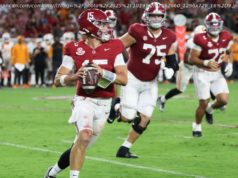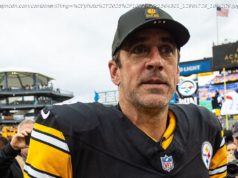Toronto compiled winning records under Dwane Casey, but that didn’t translate to the playoffs. Was that the coach’s fault?
On Wednesday, Dwane Casey’s peers voted him Michael H. Goldberg NBCA Coach of the Year. On Friday, he found himself unemployed after the Toronto Raptors fired him as head coach following seven seasons that saw them reach unprecedented heights during the regular season but fail to translate those into deep playoff runs.
That dichotomy presents the fundamental question for the Raptors in deciding Casey’s fate: Did they overachieve in the regular season or underachieve in the playoffs? Which one of those is true will eventually determine whether this move made sense.
Toronto’s 59 wins during the 2017-18 regular season are tied for the third-most ever by a team that decided to change coaches after the year. George Karl’s contract wasn’t renewed after the 1997-98 Seattle SuperSonics — with Casey as an assistant — won 61 games before losing in the second round in similarly lopsided fashion, while Mike Brown was fired in 2010 by the Cleveland Cavaliers after 61 wins and a second-round loss with LeBron James headed to free agency.
Like Casey’s Raptors, the late Flip Saunders’ 2007-08 Detroit Pistons won 59 games. They even reached the conference finals before losing to the eventual champion Boston Celtics. Yet the Pistons let Saunders go in the hopes of reinvigorating a team nearing the end of its run together. Editor’s Picks Four paths for the Raptors now: Break it up or run it back?
The Raptors still couldn’t get past LeBron and the Cavs. Does Toronto need to make changes to their core, and what would that look like? The four best Raptors trades we’d like to see
Should the Raptors trade DeMar DeRozan, and where would he fit? Our NBA Insiders give four deals that work.
1 Related
The Raptors still couldn’t get past LeBron and the Cavs. Does Toronto need to make changes to their core, and what would that look like?
Should the Raptors trade DeMar DeRozan, and where would he fit? Our NBA Insiders give four deals that work.
It’s safe to say none of those moves worked as the teams hoped. The Sonics slipped to.500 under Paul Westphal after the lockout, with Vin Baker ‘s descent into alcoholism a significant contributing factor. Westphal lasted barely more than two seasons in Seattle.
James’ departure sent Cleveland into the lottery, and eventually brought Brown back to replace Byron Scott after three years at the helm. And with the disastrous trade of Chauncey Billups for Allen Iverson compounding the mistake, Detroit dropped 20 games in the standings and were swept by Brown’s Cavaliers in the first round in Michael Curry’s only season as an NBA head coach.
There’s strong evidence supporting the notion that Casey got the most out of a limited roster during the regular season. Toronto exceed its preseason projection using ESPN’s real plus-minus (RPM) in six of Casey’s seven years with the Raptors. Twice, including this past season, they beat it by at least 10 wins.
That preseason talent assessment does appear to eventually catch up to teams to some degree in the playoffs. Of the 20 teams between 2009-10 and last season to beat their RPM projection by at least 10 wins and reach the postseason, 13 did worse in the playoffs than would be expected for a team with their seed. On average, these teams performed about 13 percent worse than expected. So overachieving in the regular season can directly contribute to underachieving in the playoffs.
I’d imagine Toronto president Masai Ujiri has a more positive view of his team’s roster than RPM, and understandably so. As I noted in explaining why the projection missed the mark by so much, RPM pegged the Raptors’ bench as a weakness because of the departure of veteran anchor Patrick Patterson. Instead, a group of young players found by the front office — including undrafted Fred VanVleet and late first-round picks Pascal Siakam and Delon Wright — emerged as the NBA’s best second unit.
Much of the credit for the backups’ analytically sound shot chart has gone to assistant coach Nick Nurse, who arrived in Toronto after two seasons as head coach of the G League’s Rio Grande Valley Vipers. Nurse was in charge as the Vipers began their transition into the country’s most aggressive 3-point shooting pro team, one that was eventually mirrored by their parent club: the Houston Rockets.
As the Raptors’ designated offensive coordinator, Nurse is credited with designing pickup games and controlled scrimmages where Toronto players were awarded four points for corner 3s and zero or minus-one points for 2-point jumpers outside the paint.
Those habits carried over to the regular season. Toronto went from taking 2s outside the paint at the league’s 12th-highest rate in 2016-17 to 26th this season, increasing the team’s rates of both 3s and shots in the restricted area. Per Second Spectrum’s quantified shot quality (qSQ) measure, the Raptors improved from the league’s seventh-worst set of shot attempts to eighth-best.
Perhaps the most important improvement came in the playoffs. Over the previous four years, Toronto’s offense had consistently performed worse than league average when adjusted for the regular-season defensive rating of the Raptors’ opponents. Last season, Toronto’s offense was 5.4 points per 100 possessions worse than average based on this measure. This year, even after being swept by the Cleveland Cavaliers, the Raptors rated 2.4 points per 100 possessions better than average on offense.
While Casey deserves credit for being flexible and implementing the change in philosophy, it wasn’t his comfort zone as a coach. Casey’s focus has always been more at the defensive end of the court. Under his watch, Toronto ranked in the NBA’s top 10 in defensive rating three times, topping out at fifth this season. This time, it was the Raptors’ defense that did not translate in the playoffs, as they could find no answer to stop LeBron James and the Cavaliers. That left Casey vulnerable.
After losing to Cleveland in the playoffs a third consecutive season, it was probably inevitable that Ujiri was going to change something to try to create a different result. Shaking up the roster will be difficult. The Raptors would be forced to sell low on All-Star guards DeMar DeRozan and Kyle Lowry, and the number of other teams dealing with luxury-tax concerns would make such trades (or one involving power forward Serge Ibaka) challenging.
Home
United States
USA — Sport Did Toronto Raptors overachieve or disappoint under Dwane Casey? – NBA




![Co Polska powinna zrobić z samolotem Władimira Putina? Polacy nie mówią tu jednym głosem [SONDAŻ]](http://nhub.news/wp-content/uploads/2025/10/thumb28d0ef65a42a58ff918a05a065000c48-100x75.jpeg)

